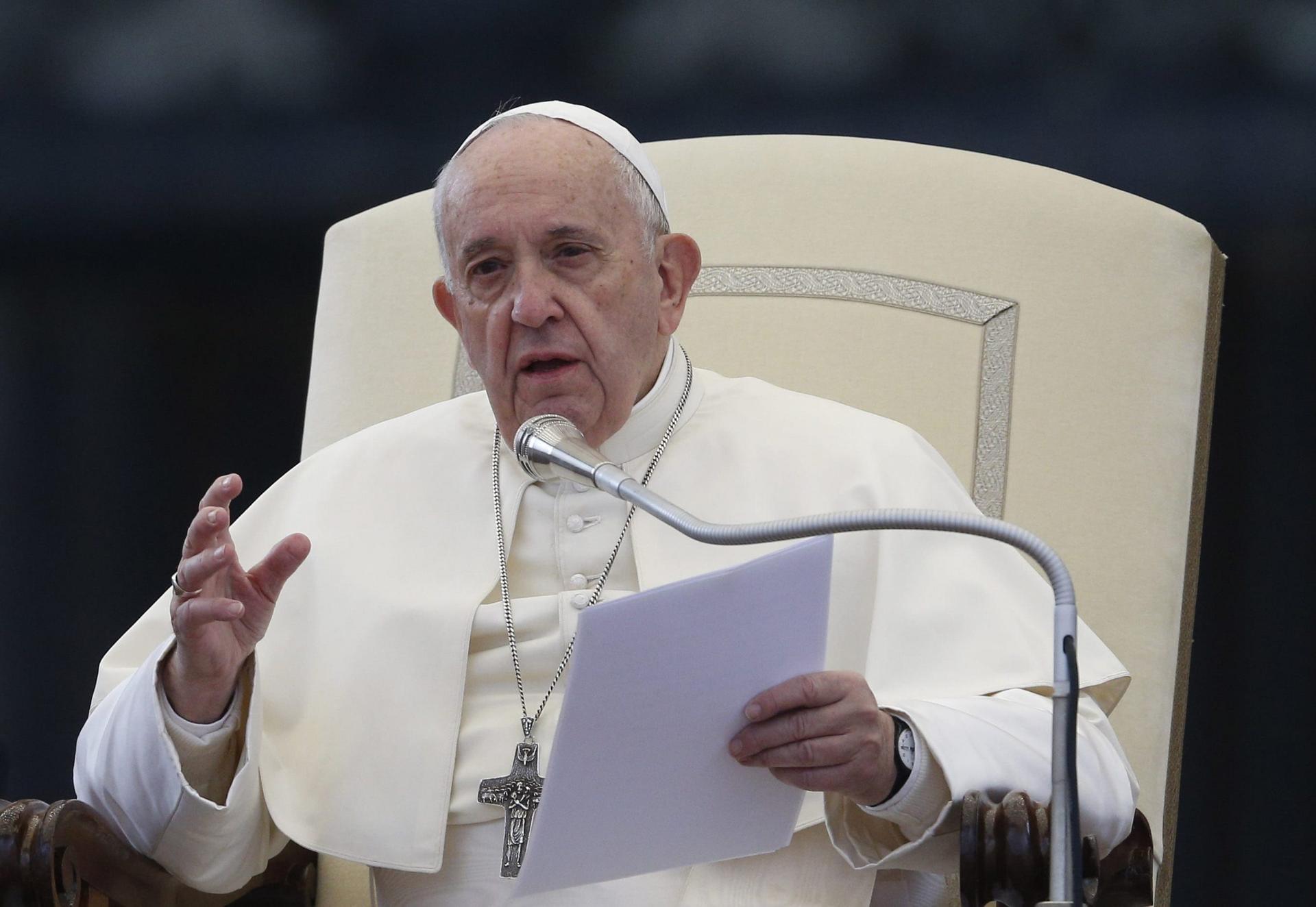Speaking to a group of lawyers on Friday, Pope Francis said that the Catholic Church is contemplating the introduction of “ecological sin” to the compendium of Church teaching.
“We have to introduce, we are thinking about it, in the catechism of the Catholic Church, the sin against ecology, the sin against our common home, because it’s a duty,” he said.
The pope’s words came just weeks after the conclusion of a bishops’ summit on the Amazon focused on the environmental threat to the region.
Francis was speaking to the 20th world congress of the International Association of Penal Law, held in Rome Nov. 13-16, under the scope of “Criminal Justice and Corporate Business.”
He also said that the culture of waste, combined with other widespread phenomena in welfare societies, is showing the “serious tendency to degenerate into a culture of hatred.”
“It is no coincidence that in these times, emblems and actions typical of Nazism reappear, which, with its persecutions against Jews, gypsies and people of homosexual orientation, represents the negative model par excellence of a culture of waste and hatred,” Francis said.
He also said that upon hearing some speeches from certain governments, although he didn’t give any examples, he’s “reminded of Hitler’s speeches in 1934, in 1936, [heard] today.”
“We must be vigilant, both in the civil sphere and the ecclesial context, to avoid any possible compromise – which is assumed to be involuntary – with these degenerations,” he said.
During his remarks on Friday, Francis also criticized the “market idolatry” that makes individual people defenseless before the interests of the “divinized market” which has become the absolute ruler, with some economic sectors exercising more power than the state itself.
“The principle of profit maximization, isolated from any other consideration, leads to a model of exclusion which violently attacks those who now suffer its social and economic costs, while future generations are condemned to pay the environmental costs,” Francis said.
“The first thing lawyers should ask themselves today is what they can do with their knowledge to counter this phenomenon, which puts democratic institutions and the development of humanity itself at risk,” he continued.
“In concrete terms, the present challenge for every criminal lawyer is to contain punitive irrationality,” which the pope noted manifests itself in mass imprisonment, crowding and torture in prison facilities, abuses by the security forces, the criminalization of social protest, the abuse of preventive detention, and the repudiation of the most elementary penal and procedural guarantees.
The pontiff also condemned the “scarce or absence of attention” that the crimes of the most powerful receive, “in particular the macro-delinquency of corporations,” which he describes as “crimes against humanity” when these lead to hunger, poverty, forced migration and death due to preventable diseases, environmental disasters and the murder of indigenous peoples.
“Global financial capital is at the origin of serious crimes not only against property but also against people and the environment,” Francis said, labeling it as “organized crime.” He said it is responsible for other things, such as the over-indebtedness of states and the plundering of the planet’s natural resources.
Harking back to the recently concluded Synod of Bishops on the Amazon, during which the bishops condemned the “sins against the environment,” Francis on Friday denounced the “ecocide” that corporations are “usually responsible for,” urging lawyers to guarantee these crimes don’t go unpunished.
By ecocide, he said he meant the “massive contamination of the air, of the land and water resources, large-scale destruction of flora and fauna, and any action capable of producing an ecological disaster or destroying an ecosystem.”
The loss or the destruction of ecosystems of a specific territory, Francis said, is a fifth category of crimes against peace, which should be recognized as such by the international community.
During his talk, Francis condemned the abuse of “preventive prison,” with a rise in the number of people being jailed without a criminal conviction, which in several countries even outnumber those serving judicial sentences; he said this violates the principle that a person is innocent until proven guilty.
He also denounced the “involuntary incentive to violence,” with countries justifying the crimes committed by agents of security forces by claiming these acts are legitimate means of fulfilling their duties.
The legal community, he said, is called to prevent this “punitive demagogy” – often racist or aimed at marginalized groups – from descending into an incentive to violence or disproportionate use of force.
Follow Inés San Martín on Twitter: @inesanma
Crux is dedicated to smart, wired and independent reporting on the Vatican and worldwide Catholic Church. That kind of reporting doesn’t come cheap, and we need your support. You can help Crux by giving a small amount monthly, or with a onetime gift. Please remember, Crux is a for-profit organization, so contributions are not tax-deductible.














